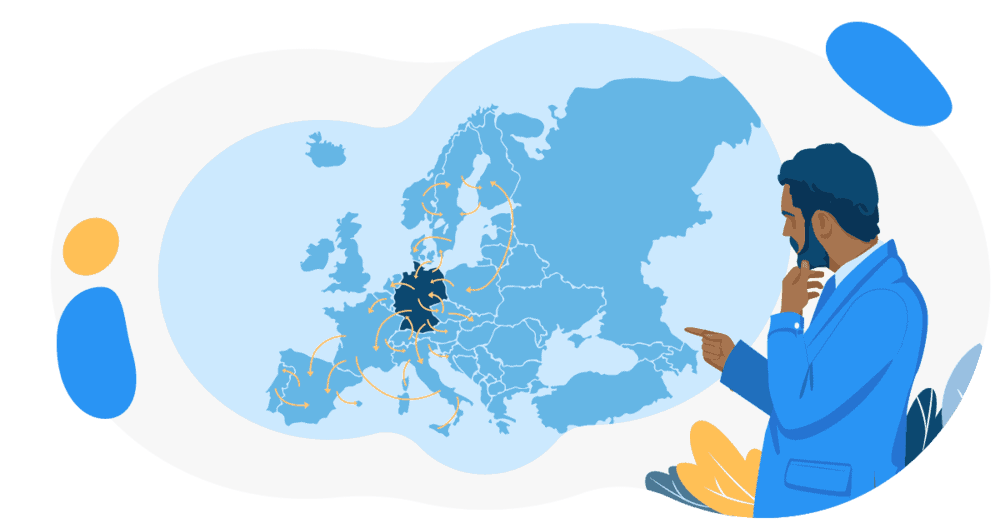
On 15 March 2024, the Council of the European Union confirmed the EU Supply Chain Directive (Corporate Sustainability Due Diligence Directive, EU-CSDDD).
Lengthy negotiations and massive concessions have led to a significant reduction in the scope of the EU-CSDDD compared to the originally planned turnover and employment limits; around 5,400 companies are now directly subject to the EU-CSDDD. This is approximately 70% fewer than the approx. 16,400 companies that would have been affected according to the original draft.
We expect the EU-CSDDD to be formally adopted in April/May 2024.
But now to the facts:
Effects on the German Supply Chain Due Diligence Act (LkSG)
By transposing the EU-CSDDD into national law, the German LkSG will be adapted to the requirements of the EU-CSDDD. The current version of the EU-CSDDD means that fewer companies would fall within the scope of the law if it were harmonised with the EU-CSDDD and also in other time horizons. The number of German companies affected will be temporarily reduced to around 1,500.
Which companies fall within the scope of the Directive?
The EU-CSDDD, which has now been launched, is applicable to companies with more than 1,000 employees if they generated global net sales of more than EUR 450 million in the last financial year.
A division into high-risk sectors is no longer being pursued. And franchise companies?
For franchise companies, the EU-CSDDD applies if the licence fees in the last financial year exceed EUR 22.5 million and if the company or its parent company achieved a worldwide net turnover of more than EUR 80 million in the last financial year.
What is the situation with third-country companies outside the EU?
Third-country companies are affected if their parent company has a net turnover of more than EUR 450 million per year within the EU or is a franchisor (provided that the licence fees in the last financial year exceed EUR 22.5 million and the company or its parent group achieved a worldwide net turnover of more than EUR 80 million in the last financial year).
Implementation periods have been massively extended
Companies with more than 5,000 employees and a net turnover of at least EUR 1.5 billion per financial year are obliged to do so three years after the EU-CSDDD comes into force, i.e., possibly from mid-2027. This depends somewhat on how quickly the EU-CSDDD is adopted.
Companies with more than 3,000 employees and at least EUR 900 million in net sales per financial year are four years old, so possibly from mid-2028.
Companies with more than 1,000 employees and a net turnover of at least EUR 300 million per financial year will then have five years, i.e., possibly from mid-2029 on.
Creation of a climate protection plan!
The human rights and environmental legal positions of the EU-CSDDD are congruent with those of the German Supply Chain Act (LkSG), but go beyond them. Newly included is an obligation for companies to endeavour to achieve a climate protection plan (“which aims to ensure, through best efforts, that the business model and strategy of the company are compatible with the transition to a sustainable economy and with the limiting of global warming to 1.5 °C in line with the Paris Agreement”). It makes sense that companies that are obliged to draw up a climate protection plan under the EU-CSRD are exempt from this due diligence obligation under the EU-CSDDD.
Civil liability and higher fines and sanctions?
The German Supply Chain Due Diligence Act (LkSG) currently does not provide for any civil liability for the obligated companies. According to the EU-CSDDD, companies can now be held liable if they have directly caused damage themselves. Liability outside their own sphere of influence is not provided for. An exclusion of liability is to be provided if the damage was caused exclusively by a direct supplier.
The German Supply Chain Due Diligence Act (LkSG) provides for fines of up to EUR 800,000. For companies with an annual turnover of more than EUR 400 million, fines of up to 2% of their turnover could be imposed. The law also excludes companies from public sector contracts.
The EU-CSDDD provides for fines based on the global net turnover of a financial year, with a maximum limit of 5% of the global net turnover. There will also be naming and shaming: the names of the sanctioned companies are to be published for at least five years.
And now?
The EU-CSDDD must now be adopted by the European Parliament. It will then be transposed into national law in all EU member states.
Will it now be easier for companies?
If you have already familiarised yourself with the EU-CSRD, then you know the answer: the requirements are coming, one way or another 😉 even if this has taken a bit of a back seat in the whole political discussion about the EU-CSDDD.
How can we help you with the implementation of the LkSG, EU-CSDDD, and EU-CSRD?
With targeted advice and the digital solution of Trustnet.Trade® from Cargodian, we can help you implement this quickly and pragmatically.
